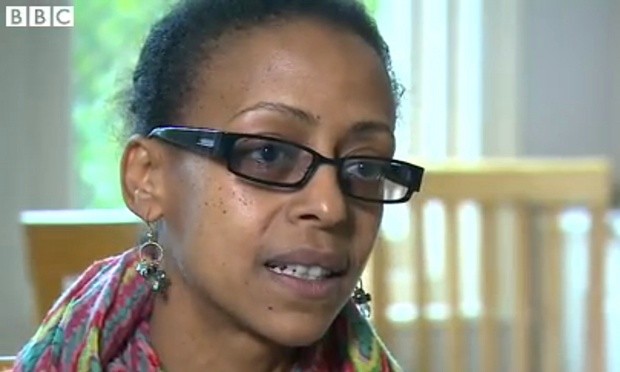Employee with dyslexia won discrimination case against Starbucks

Starbucks has lost a disability discrimination case after it wrongly accused a dyslexic employee of falsifying documents when she had simply misread numbers she was responsible for recording.
Campaigners say the ruling highlights the duty of all employers to make allowances for staff with dyslexia.
In December, an employment tribunal found that Starbucks had victimised Meseret Kumulchew after she inaccurately recorded the water and fridge temperatures as part of her duties as a supervisor at Starbucks in Clapham, south-west London.
The tribunal heard that Starbucks accused Kumulchew of falsifying the recordings, reduced her responsibilities and ordered her to retrain.
A separate hearing to determine how much compensation Starbucks should pay will be held in the next few weeks.
Kumulchew, who is still employed by Starbucks, said she had made her bosses aware of her dyslexia, and the accusation of falsifying numbers had made her want to take her own life.
She told the BBC: “There was a point that I wanted to commit suicide. I am not a fraud. The name fraud itself shouldn’t exist for me. It’s quite serious.
“I nearly ended my life. But I had to think of my kids. I know I’m not a fraud. I just made a mistake.”
The tribunal found that Starbucks had failed to make reasonable adjustments for Kumulchew’s reading difficulties under the 2010 Equality Act, which replaced the Disability Act. It said the company showed little or no understanding of equality issues.
The legislation is vague on whether dyslexia, a condition that affects one in 10 people, constitutes a disability. It defines a disability as “a physical or mental impairment which has a substantial and long-term adverse effect on … normal day-to-day activities”. It goes on to suggest that under stressful conditions people with dyslexia can be seen to suffer such an impairment.
Kate Saunders, the chief executive of the British Dyslexia Association, said Kumulchew’s plight highlighted a common problem. “All organisations must make reasonable adjustments for those with disabilities, including dyslexia, under the Equality Act 2010. They should have appropriate policies in place and make sure these are movements to avoid discrimination, including in the recruitment process, the work environment and colleague reactions,” she said.
“Sadly our national helpline receives numerous calls from adults who are facing serious problems and discrimination in the workplace. Many have found themselves very emotional, stressed, anxious and feeling as if they have nowhere else to turn. These feelings, which with the right support and awareness could easily be avoided, can lead to time off work and loss of productivity. People with dyslexia can bring unique skills to an employer and they should be highly sought after.”
Kumulchew urged Starbucks to follow its own approach to training baristas in making adjustments for her. “Starbucks says ‘do, show and tell’. That works brilliantly for me,” she said. “Visual, physical and reading, they all go together. If you miss one of them, I’m lost. I’ll struggle, don’t worry, help me, but I’ll get there in my own speed, but I won’t affect your business because [for] every customer I’ll roll out the red carpet. I want to apply Starbucks’ mission statement and the training I [was] given to the full. I love my job.”
She added: “They [Starbucks] could make life easier. Give me time to backtrack or give me another person to help. Eventually it will become routine. All the policy is in small writing [so] make it bigger [so] it doesn’t muddle up my brain to digest.”
Starbucks said it could not discuss the case as it was still in negotiation with Kumulchew, but said it was committed to having a “diverse and inclusive workforce”.
In a statement it said: “We have been working with the British Dyslexia Association on improving the support we provide to our employees, and did so concerning Meseret Kumulchew in 2015.
“We recognise however that we need to do more, which is why we are investigating what additional support we can provide.”
The advocacy group Dyslexia Action said Kumulchew’s courage in pursuing the case had set an example for others.
Its chief executive, Stephen Hall, said: “Without the correct support, people with dyslexia can suffer a huge loss of confidence and low self-esteem. This is a great shame as those with dyslexia have much to offer in the workplace. Many people with dyslexia work very differently from conventional methods, but employers stand to gain great benefit from the different perspective that this brings and ability to think outside the box.”
How to submit an Op-Ed: Libyan Express accepts opinion articles on a wide range of topics. Submissions may be sent to oped@libyanexpress.com. Please include ‘Op-Ed’ in the subject line.
- Libya’s HCS invites applicants for key state roles - December 31, 2023
- UK calls on Iran to prevent escalation in Israel-Hamas conflict - November 05, 2023
- Libyan Interior Minister: Immigrant shelter costs a fortune - November 05, 2023


